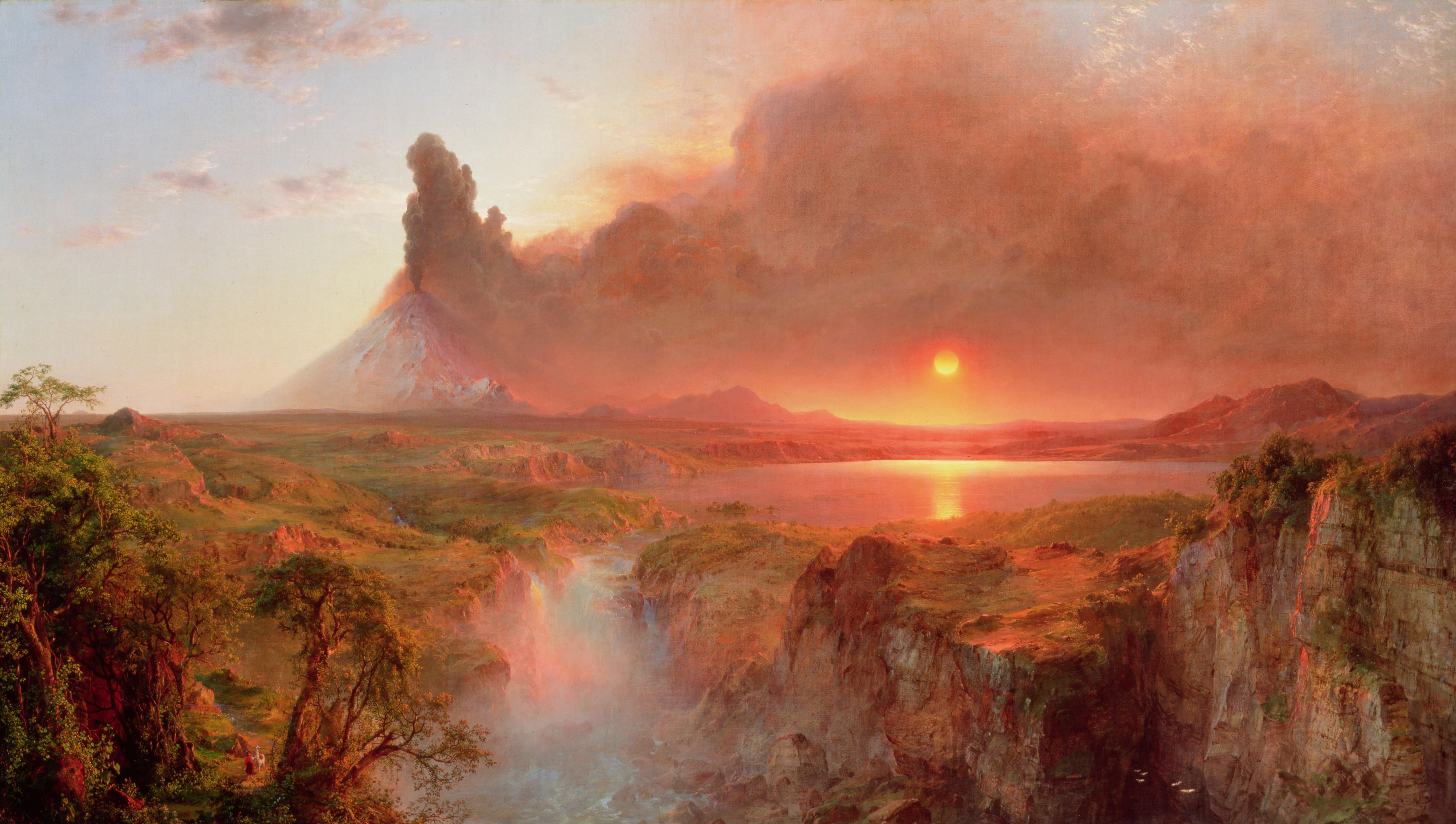by neufer » Wed May 26, 2010 2:04 pm
http://en.wikipedia.org/wiki/Cotopaxi wrote:
<<Cotopaxi is a stratovolcano in the Andes Mountains, located about 28 km (17 mi) south of Quito, Ecuador, South America. It is the second highest summit in the country, reaching a height of 5,897 m. It has one of the few equatorial glaciers in the world, which starts at the height of 5,000 metres. The mountain is clearly visible on the skyline from Quito.
Cotopaxi means
"Smooth Neck of the Moon", and was honored as a "Sacred Mountain" by local Andean peoples, even prior to the beginning of Inca domination in the 15th century. It was worshiped as “rain sender”, that served as the guarantor of the land's fertility, and at the same time its summit was revered as a place where gods lived.
The first European who tried to climb the mountain was Alexander von Humboldt in 1802, however, he only reached a height of about 4500 m. On November 27, 1872, geologist Wilhelm Rajss finally reached the summit of Cotopaxi. Painters Rudolf Reschreiter and Hans Meyer reached the summit in 1903 and many of Reschreiter's paintings feature a view of Cotopaxi.

- "Cotopaxi" by Frederic Edwin Church, 1862.
Cotopaxi is one of the highest active volcanoes in the world. However,
Llullaillaco volcano is considerably higher (6,739 m) and is definitely in an active phase, having erupted as recently as 1877. Ojos del Salado is higher still (6,893 m), and there are indications near its summit of recent activity, although its remoteness precludes a definitive statement as to whether it is currently active.
There have been more than 50 eruptions of Cotopaxi since 1738. Numerous valleys formed by lahars (mudflows) surround the volcano. This poses a high risk to the local population, their settlements and fields. Cotopaxi's most violent eruptions in historical times occurred in the years 1744, 1768, and 1877. In the 1877 eruption pyroclastic flows descended all sides of the mountain, with lahars traveling more than 100 km into the Pacific Ocean and western Amazon basin draining the valley. The main danger of a huge eruption of Cotopaxi would be the flow of ice from its glacier. If there were to be a very large explosion, it would destroy most of the settlements within the valley in the suburban area of Quito.>>
[quote=" http://en.wikipedia.org/wiki/Cotopaxi"]
<<Cotopaxi is a stratovolcano in the Andes Mountains, located about 28 km (17 mi) south of Quito, Ecuador, South America. It is the second highest summit in the country, reaching a height of 5,897 m. It has one of the few equatorial glaciers in the world, which starts at the height of 5,000 metres. The mountain is clearly visible on the skyline from Quito.
Cotopaxi means [b]"[color=#0000FF]Smooth Neck of the Moon[/color]"[/b], and was honored as a "Sacred Mountain" by local Andean peoples, even prior to the beginning of Inca domination in the 15th century. It was worshiped as “rain sender”, that served as the guarantor of the land's fertility, and at the same time its summit was revered as a place where gods lived.
The first European who tried to climb the mountain was Alexander von Humboldt in 1802, however, he only reached a height of about 4500 m. On November 27, 1872, geologist Wilhelm Rajss finally reached the summit of Cotopaxi. Painters Rudolf Reschreiter and Hans Meyer reached the summit in 1903 and many of Reschreiter's paintings feature a view of Cotopaxi.
[img]http://upload.wikimedia.org/wikipedia/commons/6/60/Cotopaxi_church.jpg[/img]
[list][size=180]"Cotopaxi" by Frederic Edwin Church, 1862.[/size][/list]
Cotopaxi is one of the highest active volcanoes in the world. However, [url=http://en.wikipedia.org/wiki/Llullaillaco][b]Llullaillaco[/b][/url] volcano is considerably higher (6,739 m) and is definitely in an active phase, having erupted as recently as 1877. Ojos del Salado is higher still (6,893 m), and there are indications near its summit of recent activity, although its remoteness precludes a definitive statement as to whether it is currently active.
There have been more than 50 eruptions of Cotopaxi since 1738. Numerous valleys formed by lahars (mudflows) surround the volcano. This poses a high risk to the local population, their settlements and fields. Cotopaxi's most violent eruptions in historical times occurred in the years 1744, 1768, and 1877. In the 1877 eruption pyroclastic flows descended all sides of the mountain, with lahars traveling more than 100 km into the Pacific Ocean and western Amazon basin draining the valley. The main danger of a huge eruption of Cotopaxi would be the flow of ice from its glacier. If there were to be a very large explosion, it would destroy most of the settlements within the valley in the suburban area of Quito.>>[/quote]